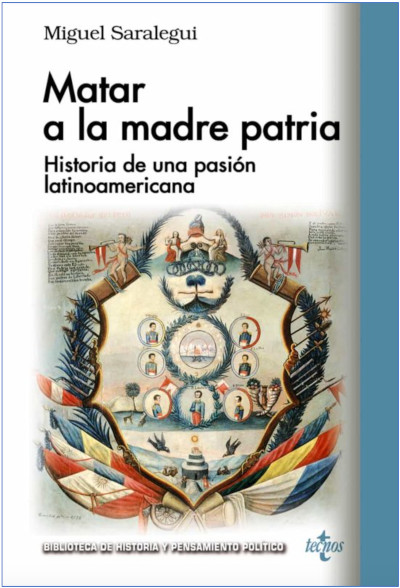Although the degree scroll and a large part of the exhibition of the work focuses on the origin of the anti-Spanishness that from time to time surfaces in Latin American perceptions and discourses, Miguel Saralegui goes beyond what would be the framework of the mere relationship of the ex-colonies with the mother country. In addition to the forensic exercise of determining where this anti-Spanishness comes from and why it still persists two hundred years later, what Saralegui does is to provide a theory that responds to the permanent conjecture about Latin America's economic and political backwardness. In essence, rather than dealing with Spain's heritage or its relationship with the region, the book looks squarely at Latin America's problem with itself.
But before arriving at this final reflection, Saralegui dissects the hatred of the Spanish developed by the Creole elites who led the independence movements at the beginning of the 19th century and influenced the new republics in the following decades. With a PhD in history and at Philosophy, Saralegui moves in the field of political thought. He reviews four areas in which anti-Spanish anti-Spanishness was given concrete form in this early Latin American liberalism: politics, Economics, race and religion.
It is not imperiophobia, he specifies, but Hispanophobia: not disdain for empire as a political form, but for the way Spain exercised it. "Liberals resent the clumsy domination exercised over America more than the fact that they were subjected to an empire," he says. Those liberals of the time admit with clear envy the continuity between the English empire and the United States, but conclude that Spain has not been a mother but a bad stepmother who has not allowed the colonial elites to Education in the political values of the century. They also blame Spain for being obsessed with the mine - the Economics of extraction - without opening up to trade without monopolies that would favour capitalism, so that "if politically Spain is an absent mother, economically it will be a toxic mother". Nor do they thank Spain for the mestizo bequest : "for nineteenth-century liberalism, mestizaje is one more of the civilising oversights of the mother country", an inheritance that complicates the management of independent societies and nourishes in their leaders a substratum of anti-populism. As for religion, curiously enough, the new republics took it on board without problems, even though the Church went hand in hand with the Monarchy in the Spanish empire, but they accepted it, demanding that it be cleaned up in some ways, because they saw it as an instrument of moral Education of the people and also of political domination.
Saralegui arrives at the end of his essay with the cards already laid out on the table and now proceeds to read the fate they mark. "Spanishism is more synchronic than diachronic: the problem is not in the aberrations committed by the Spaniards", he writes, without really assuming any qualification about colonisation, "but in the fact of having definitively shaped Spanish-American society. The transgression of five hundred years ago generated a society that not even the actions of yesterday, today and foreseeably tomorrow will be able to transform". That killing of the original mother country generated, according to Saralegui, two permanent principles in Latin American political life: that of external guilt and that of permanent revolution.
Certainly, these two principles are there. In Latin America it is common to attribute the cause of one's ills to an external agent - first Spain and then the United States - and it is also common to want to start from scratch: "we will go from despising the Spanish past to denigrating the whole of the past". This is a revolution that, because it is constant, sample is clearly sterile. Saralegui concludes that it is this sterility that still binds the region to anti-Spanishness today because, in wanting to make amends and never quite succeeding, certain peninsular habits of two hundred years ago remain in their behaviour, continually placing before Latin American eyes that which they disdain.
It is not clear whether Saralegui considers this to be a condemnation, an eternal return, from which Latin American republics, once their founding fathers opted to "kill Spain", will be able to free themselves. Nor whether that independence, which would have come sooner or later, could have been achieved in a different way, with different consequences in the collective imagination. In addition, the author insists on the postulates of nineteenth-century liberalism in the region, but although this led to emancipation, conservatism has also had a great influence in establishing Latin American identity (until very recently, politics in Latin America has been a give-and-take between conservative and liberal parties).
Because, after all, what is the heritage Genetics left by Spain? Beyond the perception of the enlightened Creoles, what can be said objectively about it? Saralegui does not enter into this evaluation, which may leave the reader unsatisfied, but at the same time is a virtue of essay. He seems to suggest that, as a Spaniard, it is preferable for him to stay out of it, for the sake of intellectual rigour; this, however, pushes him to point out the multiple contradictions into which those who continue to conjugate Hispanophobia fall.

